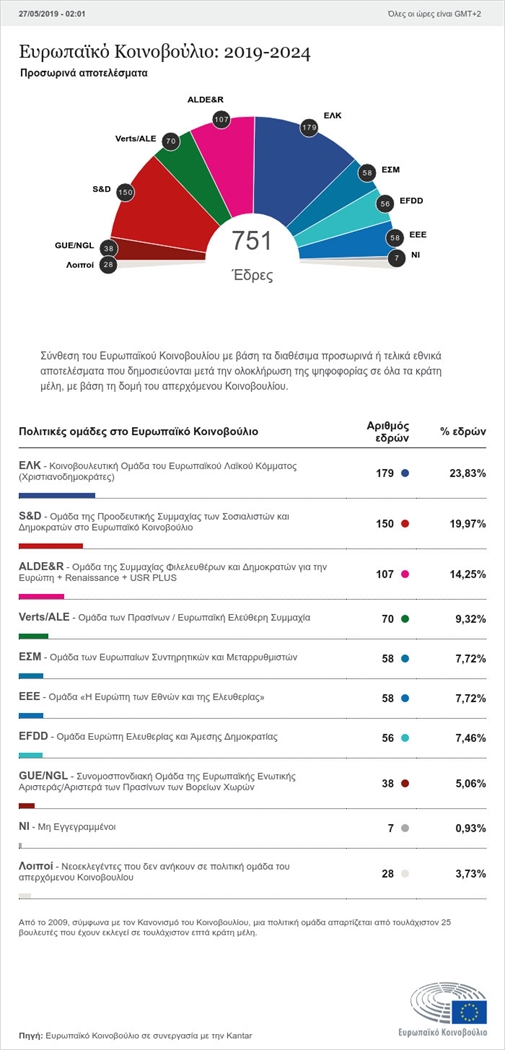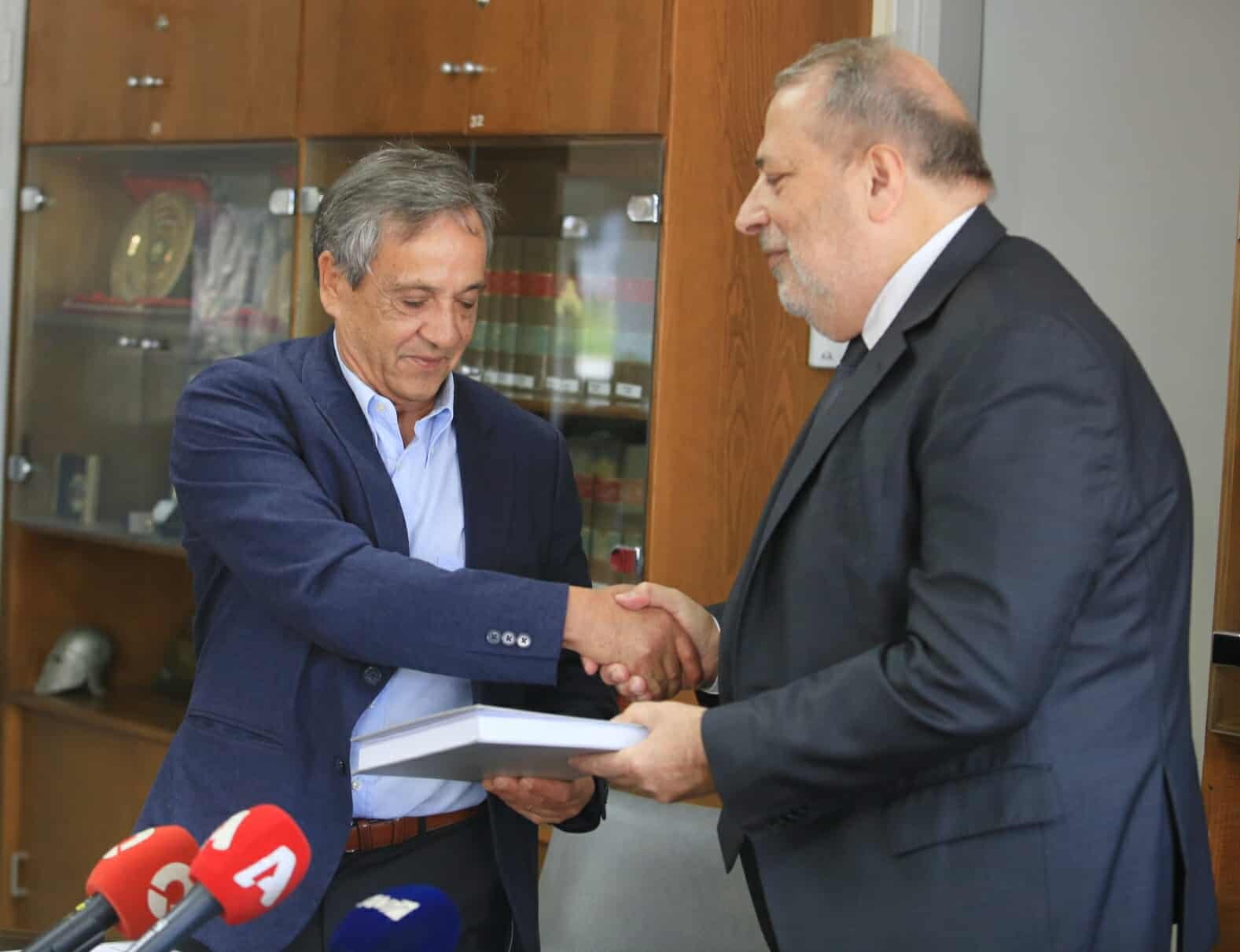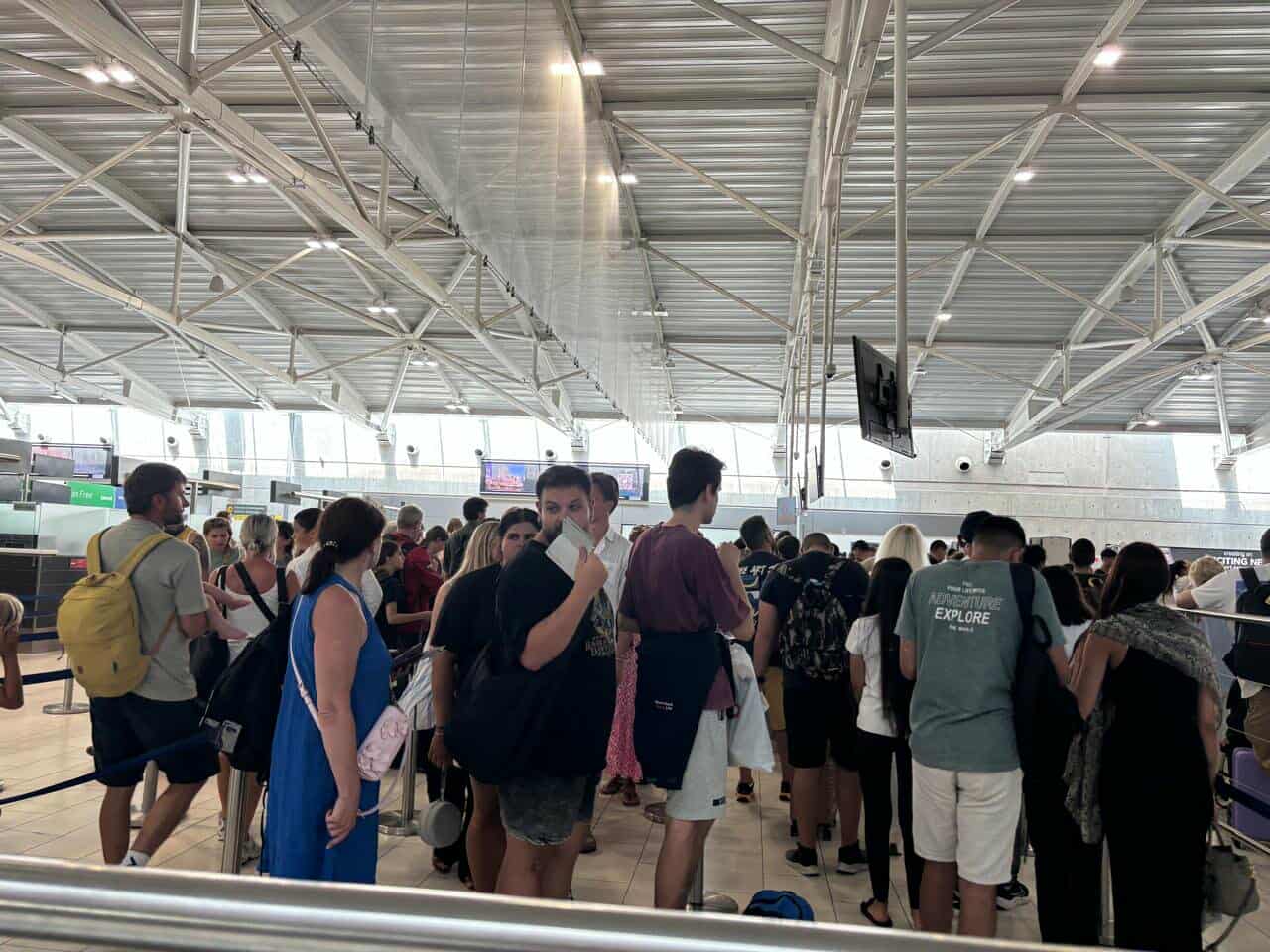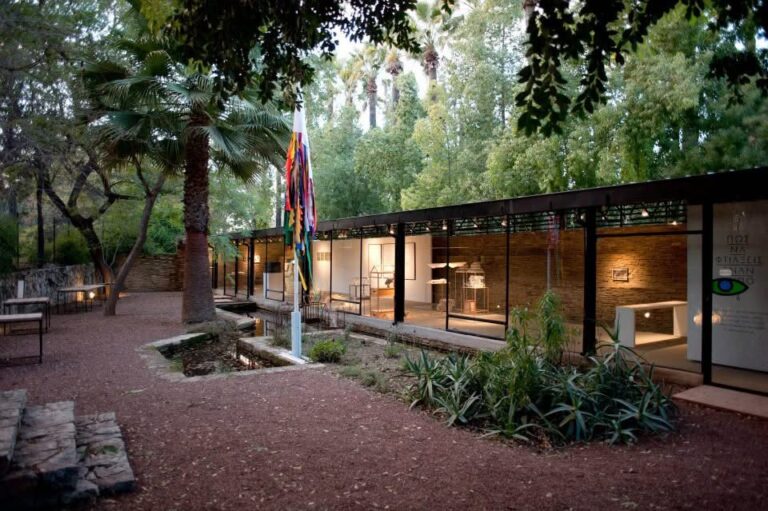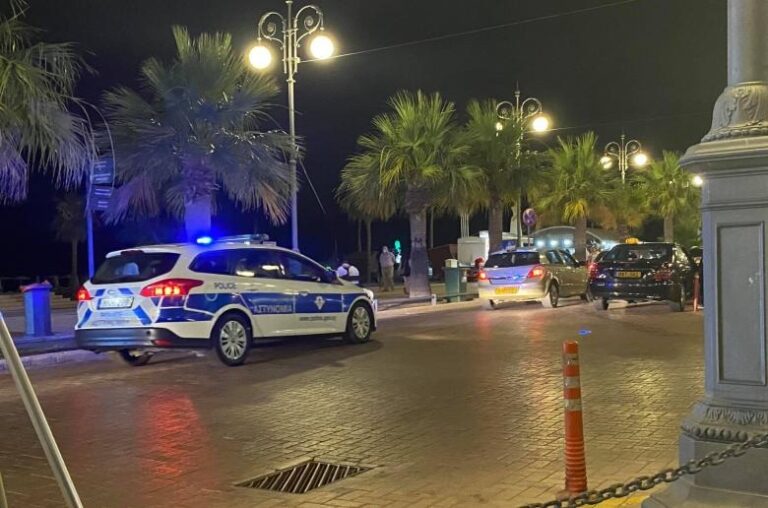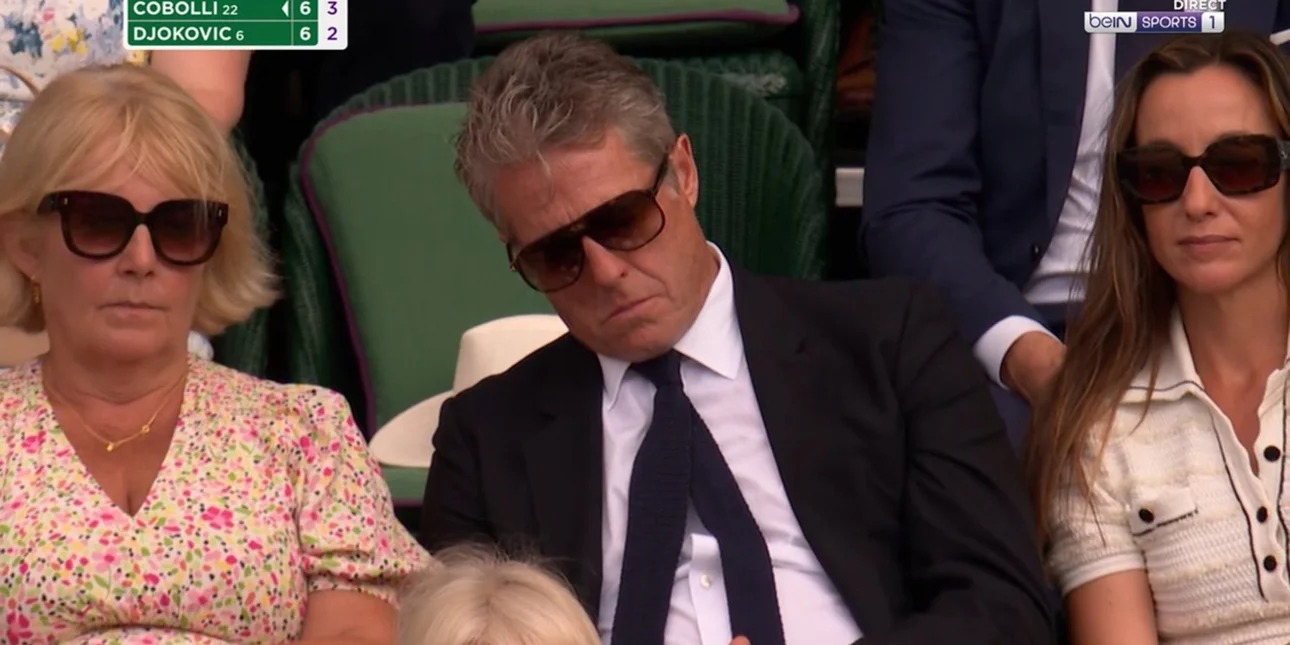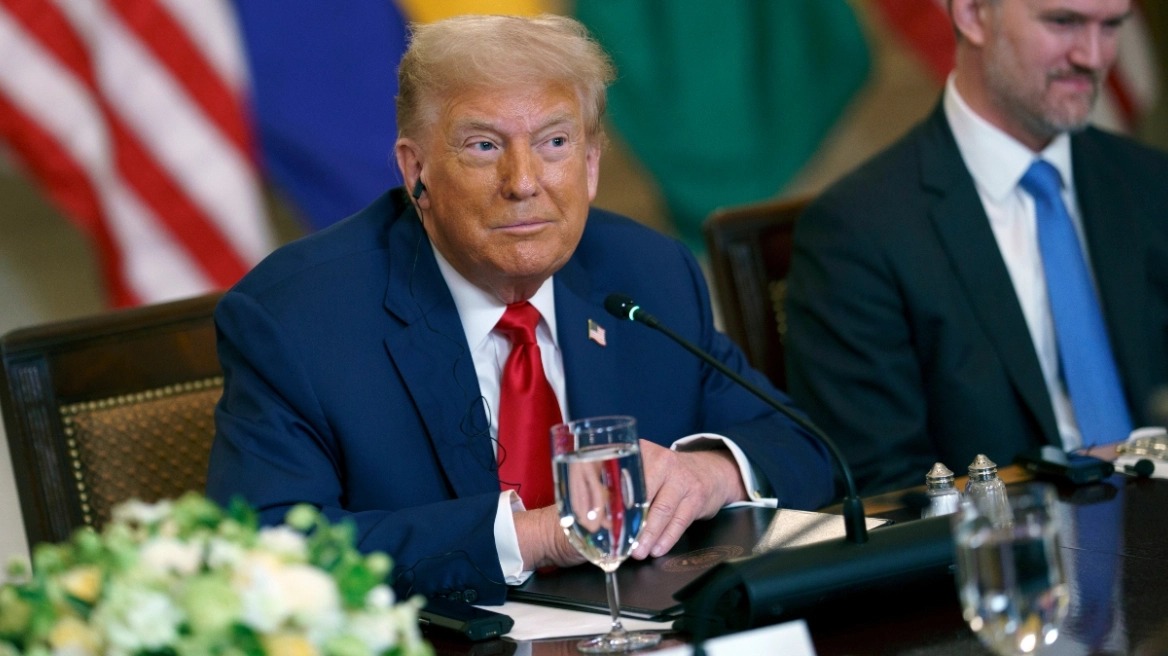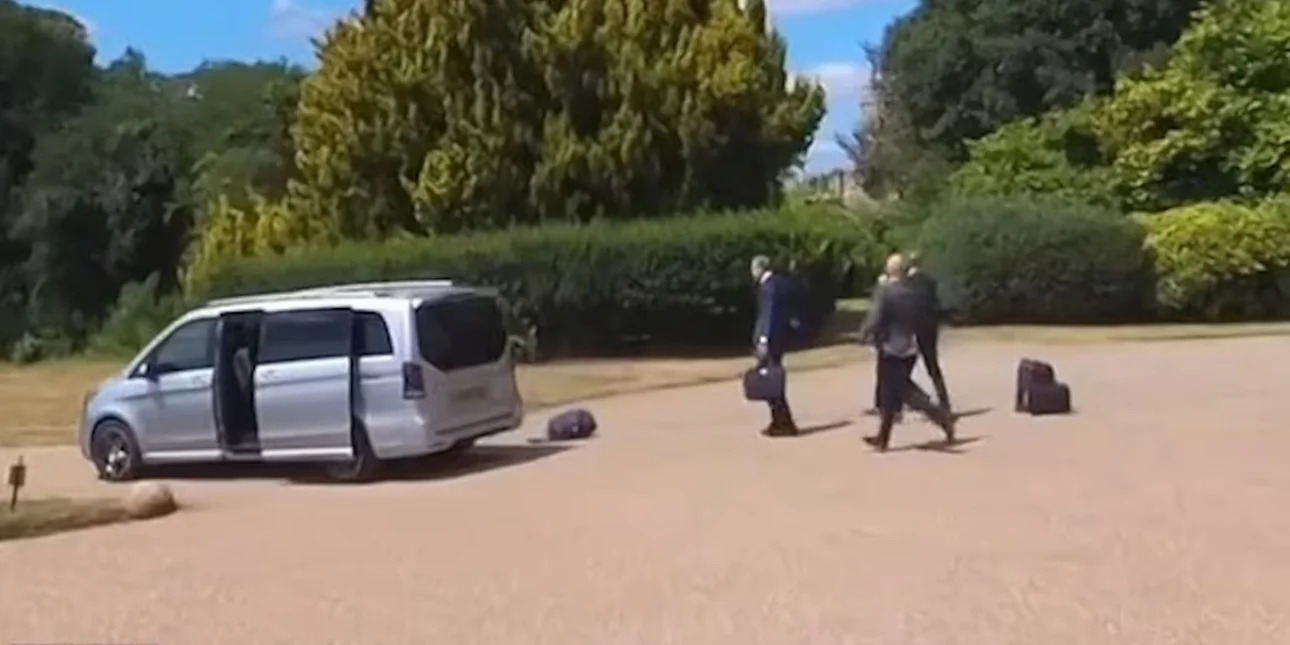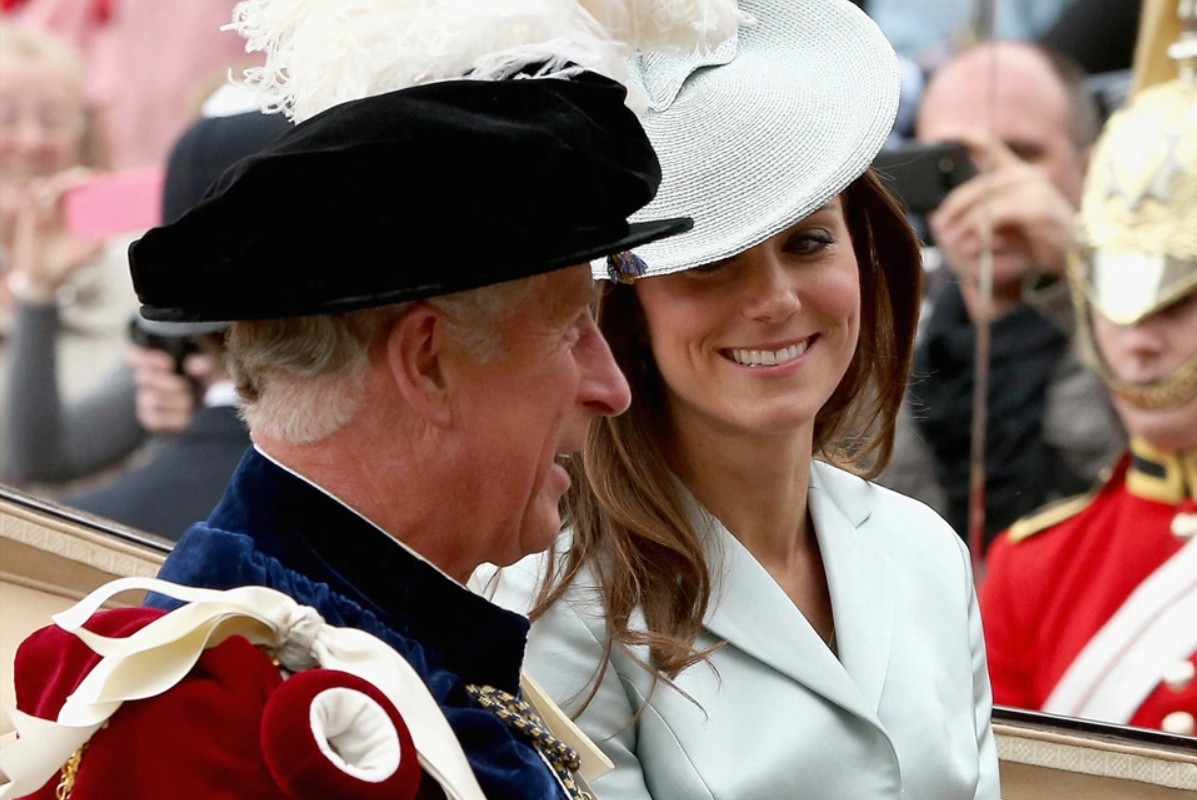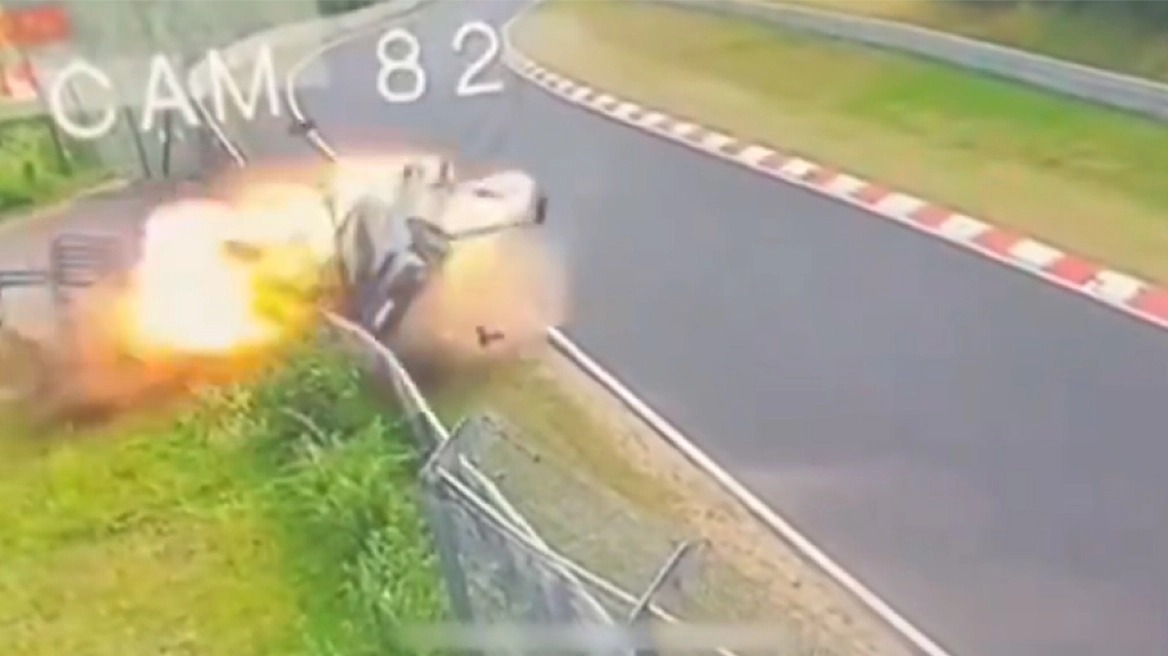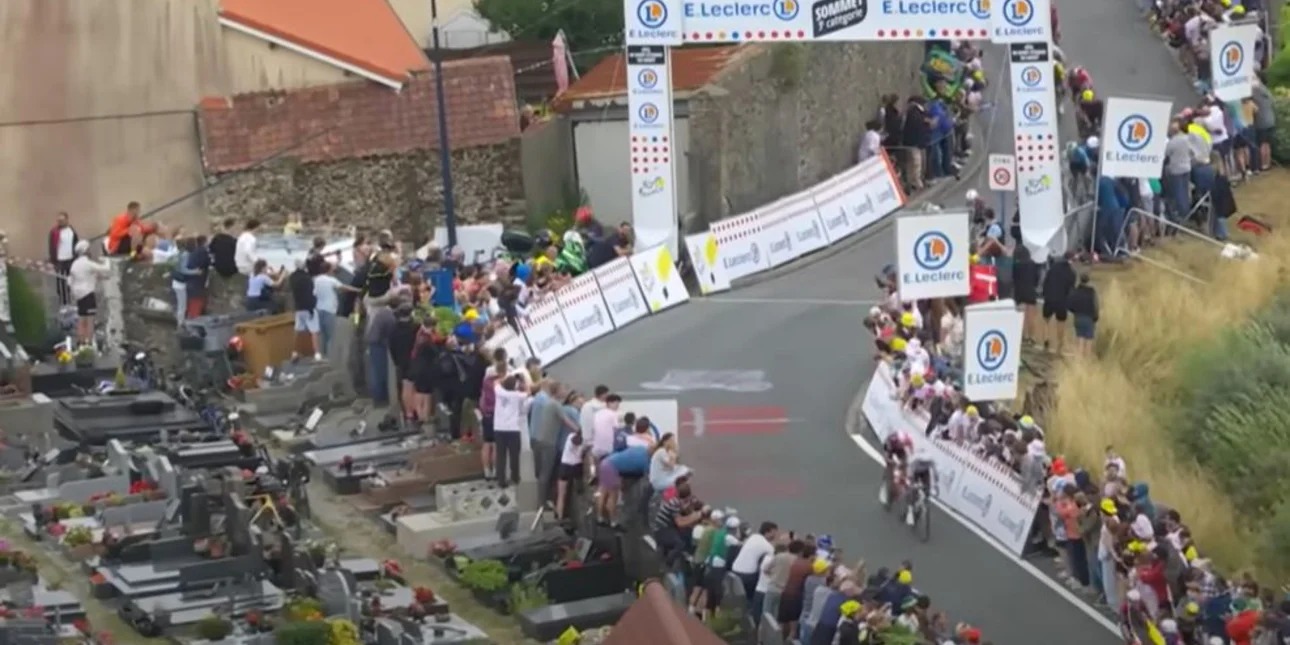A newly-elected European Parliament faces challenges after European elections, with provisional results indicating that while pro-European parties retained a firm grip on the EU parliament, eurosceptic opponents saw strong gains.
The two centrist groups the EPP (European people’s Party) and S&D (Socialists and Democrats) who have traditionally formed the ‘grand coalition’ and dominated the assembly no longer hold a majority in the 751 strong chamber.
The EPP is seen as winning 179 seats, down from 216 while the S&D won 150, down from 185. The Liberals (ALDE) won 107, up 39 and the Greens/EFA 70 – an increase of 18.
The European Conservatives and Reformists (ECR) the Europe of the Nations (ENF) each won 58, the Europe of Freedom and Direct democracy Group (EFDD) won 56 and the European Left 38. Another seven seats went to non-attached members and 28 to newly elected MEPs who do not belong to a political group set up in the outgoing parliament.
Reuters noted that although the far-right and nationalists in Italy, Britain, France and Poland came out on top in their national votes on Sunday, shaking up politics at home, they failed to dramatically alter the balance of pro-European power in EU assembly.
At the EU level, provisional results showed the Socialists, Greens, liberals and conservatives with 506 of the 751 seats in the parliament that helps pass laws for more than 500 million Europeans.
Reuters noted that although policy-making is likely to be difficult given the breakdown of a “grand coalition” of the centre right and centre left, the result shields the EU from anti-establishment forces seeking to break up the world’s largest trading bloc.
There were cries of “Europe is back” among voters waving blue and gold EU flags outside European Parliament in Brussels on Sunday night after a sharply higher turnout across the bloc.
Turnout in the world’s second-biggest election rose to 51% from 43% in 2014, its highest in 20 years. It was the first reverse in a trend of falling participation since the first direct EU vote in 1979 and may muffle talk of a “democratic deficit” undermining EU legitimacy, Reuters added.
FIGHT FOR EU POSTS
The European Parliament election is expected to lead to hard bargaining over who will run EU institutions. Officials for the four pro-EU centre parties were quick to talk of plans for a broad coalition.
“We are facing a shrinking centre,” said Manfred Weber, the German lead candidate of the EPP. “So what I would ask us to do to is to join our forces to work together from now.”
Parliament has insisted that one of its own winning members should succeed Jean-Claude Juncker as president of the executive European Commission. But many national leaders, who will meet over dinner in Brussels on Tuesday, have said they will not be bound by that demand.
The results are expected to be discussed at a summit meeting of EU leaders in Brussels on Tuesday. The focus is expected to be on the next European Commission, as well as the new ECB governor and the new president of the European Council.

